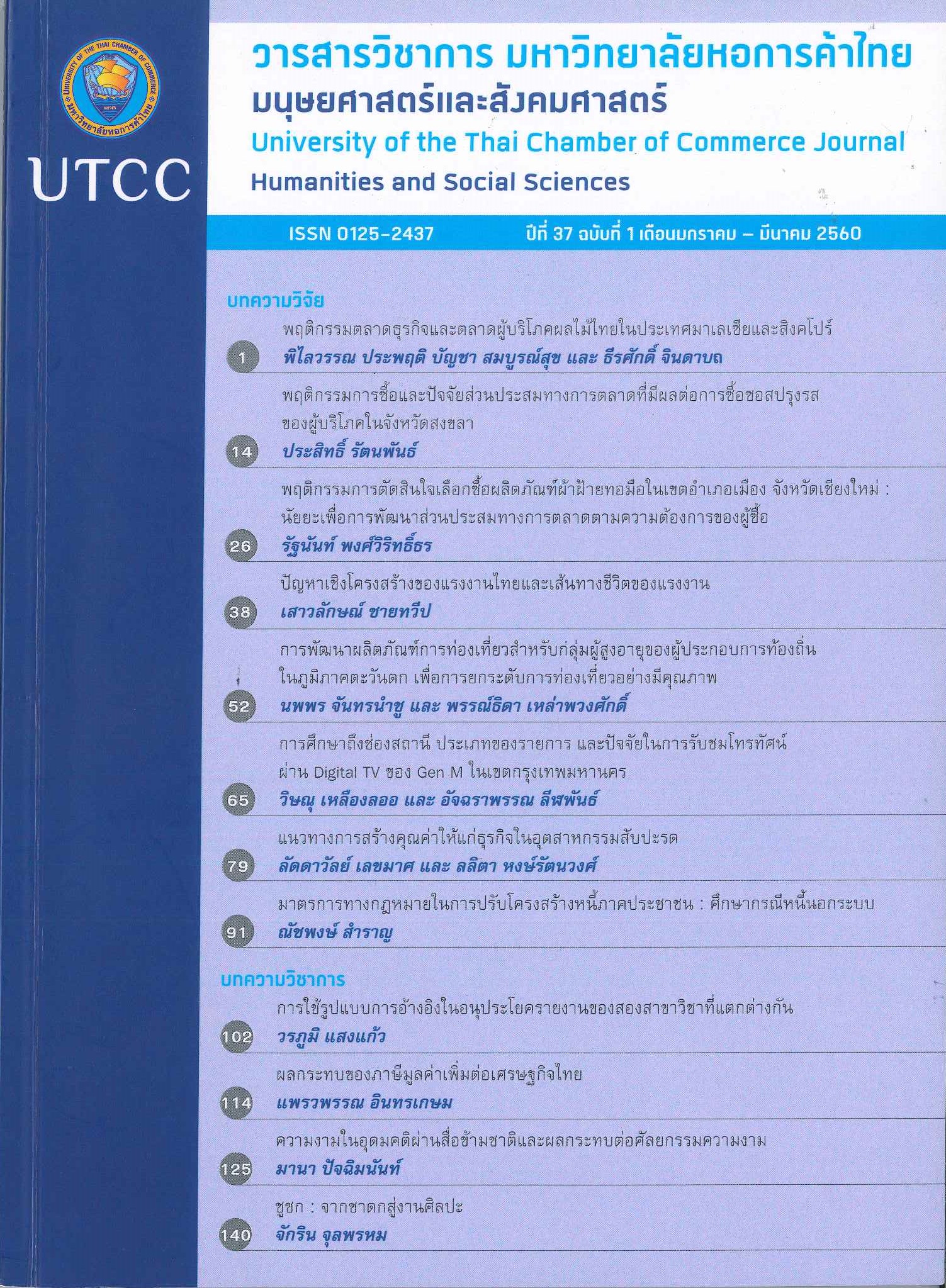The Impact of Value Added Tax on Thailand Economy
Main Article Content
Abstract
Value Added Tax (VAT) is a tax for the sales of goods or provisions of services. The current VAT rate is 7.0 percent. Due to an economic crisis, Thai government has considered increasing in the rate of VAT. The increasing VAT is expected to support government budgeting and expenditure on infrastructure as well as social security and medicare for the elderly in the future. VAT rate is broad based that affects aggregate consumption. Thus, a constructive line of increasing VAT rate is suggested for 0.5 percent in the first two years and 1.0 percent for the third and the fourth year. The government should impose VAT in a fair rate and disclose to the public to prevent tax
avoiding. Additionally, inheritance and estate taxes should be included as VAT.
Article Details
ลิขสิทธิ์ของบทความ
ผลงานที่ได้รับการตีพิมพ์ถือเป็นลิขสิทธิ์ของมหาวิทยาลัยหอการค้าไทย ห้ามมิให้นำเนื้อหา ทัศนะ หรือข้อคิดเห็นใด ๆ ของผลงานไปทำซ้ำ ดัดแปลง หรือเผยแพร่ ไม่ว่าทั้งหมดหรือบางส่วนโดยไม่ได้รับอนุญาตเป็นลายลักษณ์อักษรจากมหาวิทยาลัยหอการค้าไทยก่อน
References
Durongkaveroj, W. (2013). Value added tax. Retrieved June 20,2016 from http://blogazine.in.th/blogs/wannaphong/post/4501 (in Thai).
Fiscal Policy Office. (2015). Financial innovation & appliciton to Thailand. Retrieved July 15,2016, from http://thaipublic.org/2015/08/sara-26-8-2558/ (in Thai).
Indod, K. (2011). Tax revenue and economic growth in Asian countries. (Unpublished master's thesis) Chiang Mai University. (in Thai).
Ministry of Finance.(2015). Economic evaluation year 2015. Retrieved June 30,2016, From http://www.bot.or.th (in Thai).
Rungkasiri, S. (2015). Value added tax. Retrieved June 27 ,2016,from http:// thannews.th.com (in Thai).
Revenue Department.(2012). Value added tax. Retrieved June 18,2016,from http://www.Sanpakornsarn.com (in Thai).
Sumit,S., & Wonbanthun, S.(2003). International economics. ,Chulalongkron University. (in Thai).
Taxation Professional Group. (2013). Taxation. Bangkok: Reankeaw Publishing. (in Thai).
Waithayawongsakul, P. (2013). Accounting for the community as a factual advancement to sustainability based on the concept of a sufficiency economy. University of the
Thai Chamber of Commerce Journal, 33(1), 152 -170. (in Thai).


